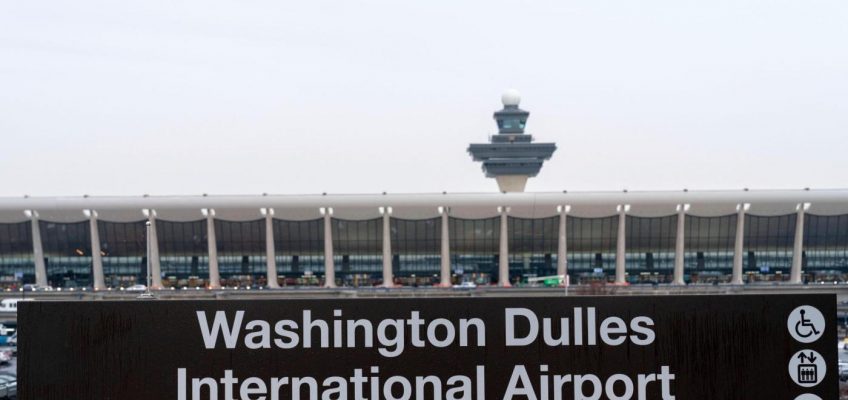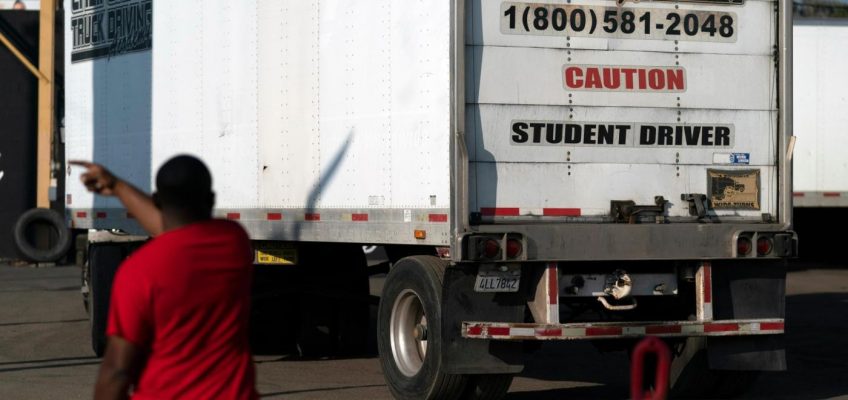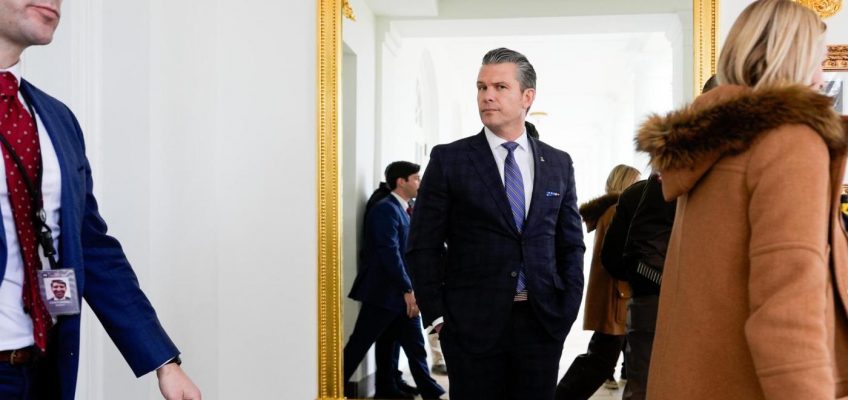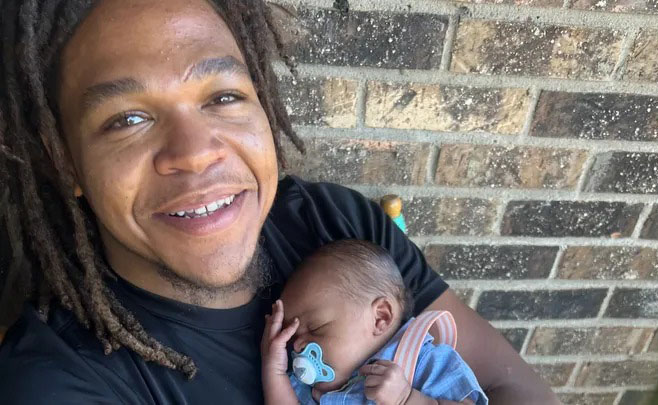By BEN FINLEY and KONSTANTIN TOROPIN
WASHINGTON (AP) — The U.S. military would have committed a crime if it killed the survivors of an attack on an alleged drug boat, legal experts say.
Academic society bans Larry Summers for life over his close ties to Jeffrey Epstein
Trump says he’s rebuilding Dulles airport while his administration is fixing the ‘people movers’
Crackdown on trucking schools shouldn’t disrupt industry. But scrutiny on immigrant drivers might
Chances dwindling for renewal of health care subsidies, risking premium spikes for millions
Doodling, drowsiness and a conspicuous misspelling highlight Trump’s last Cabinet meeting of 2025
It doesn’t matter whether the U.S. is in “armed conflict” with drug cartels as the Trump administration asserts. Such a fatal second strike would have violated peacetime laws and those governing armed conflict, the experts say.
“I can’t imagine anyone, no matter what the circumstance, believing it is appropriate to kill people who are clinging to a boat in the water,” said Michael Schmitt, a former Air Force lawyer and professor emeritus at the U.S. Naval War College. “That is clearly unlawful.”
The White House confirmed Monday that a second strike was conducted in September against a vessel accused of trafficking drugs off the coast of Venezuela and insisted it was done “in self-defense” and in accordance with the laws of armed conflict.
A news report about that attack spawned a new level of scrutiny from lawmakers and added to a growing debate about whether service members can refuse to follow illegal orders, which some Democratic lawmakers recently encouraged.
Here’s what to know about the strikes and laws of armed conflict:
What set off the debate
The Washington Post reported last week that Defense Secretary Pete Hegseth issued a spoken directive to “kill everybody” on a boat targeted on Sept. 2, the first vessel hit in what the Trump administration calls a counterdrug campaign that has grown to over 20 known strikes and more than 80 dead.
Two men survived that first attack, which killed nine others, and were clinging to the wreckage, the newspaper reported. The commander in charge, Adm. Frank Bradley, ordered a second strike to comply with Hegseth’s instructions, killing the two men, the Post reported.
Hegseth called it “fake news” on social media, saying the boat strikes are “in compliance with the law of armed conflict — and approved by the best military and civilian lawyers, up and down the chain of command.”
President Donald Trump said Sunday that the administration “will look into” it but added that “I wouldn’t have wanted that — not a second strike.” He noted that Hegseth told him “he did not order the death of those two men.”
White House spokeswoman Karoline Leavitt told reporters Monday that Bradley had ordered the second strike and “was well within his authority to do so.” She denied that Hegseth said to leave no survivors.
The administration has justified the attacks as a necessary escalation to stem the flow of drugs into the United States and asserted the U.S. is engaged in an “armed conflict” with drug cartels, similar to the war against al-Qaida following the Sept. 11 attacks.
What the law allows during armed conflict
A second strike killing survivors would have been illegal under any circumstance, armed conflict or not, Schmitt said.
He said the U.S. is not in a legitimate armed conflict with drug cartels, which would have to be committing high levels of violence against the country, not just trafficking drugs that kill Americans.
Even if it was, “it has been clear for well over a century that you may not declare what’s called ‘no quarter’ — take no survivors, kill everyone,” Schmitt said.
Whether an armed conflict is taking place likely would not be settled by an international body like the International Criminal Court, to which the U.S. is not a party, said Matthew Waxman, a Columbia University law professor who was a national security official in the George W. Bush administration.
The U.S., however, could face blowback from allies, which may decline to share information for military operations that are illegal under their own laws or international law, said Waxman, who served in the State and Defense departments and on the National Security Council under Bush.
America’s armed conflict against al-Qaida received support from the U.N. Security Council, NATO and U.S. allies, he said.
The legal threat posed to US military personnel
If the U.S. is not in an armed conflict, that means it violated international human rights law, which governs how countries treat individuals, Schmitt said.
“You can only use lethal force in circumstances where there is an imminent threat,” Schmitt said. “And that wasn’t the case.”
Brian Finucane, a senior adviser with the International Crisis Group and a former State Department lawyer, agreed that the U.S. is not in an armed conflict with drug cartels.
“The term for a premeditated killing outside of armed conflict is murder,” Finucane said, adding that U.S. military personnel could be prosecuted in American courts.
“Murder on the high seas is a crime,” he said. “Conspiracy to commit murder outside of the United States is a crime. And under the Uniform Code of Military Justice, Article 118 makes murder an offense.”
The Pentagon’s own manual on the laws of war describes a scenario similar to the Sept. 2 boat strike when discussing when service members should refuse to comply with unlawful orders.
“For example,” the manual says, “orders to fire upon the shipwrecked would be clearly illegal.”
What Congress has said about what comes next
Leaders of the Armed Services committees in both the House and Senate have opened investigations.
Republican Sen. Roger Wicker of Mississippi, chairman of the Senate’s committee, and its top Democrat, Rhode Island Sen. Jack Reed, said the committee “will be conducting vigorous oversight to determine the facts related to these circumstances.”
Concern about the second strike comes after a group of Democratic lawmakers — all veterans of the armed services and intelligence community — released a video calling on U.S. military members to defy “illegal orders.”
Among them was Sen. Mark Kelly, an Arizona Democrat and former Navy fighter pilot who has questioned the use of the military to attack the alleged drug boats. The Pentagon says it’s investigating Kelly over possible breaches of military law tied to the video.
Kelly said Monday that “if what seems to have happened, actually happened, I’m really concerned about our service members.”
Senate Majority Leader John Thune has defended the boat strikes as stopping the flow of narcotics into the U.S. and said to wait for the outcome of the reviews.
“Obviously, if there was a direction to take a second shot and kill people, that’s a violation of an ethical, moral or legal code. We need to get to the bottom of it,” said Sen. Thom Tillis, a North Carolina Republican.
Associated Press writers Stephen Groves, Lisa Mascaro and Joey Cappelletti contributed to this report.




